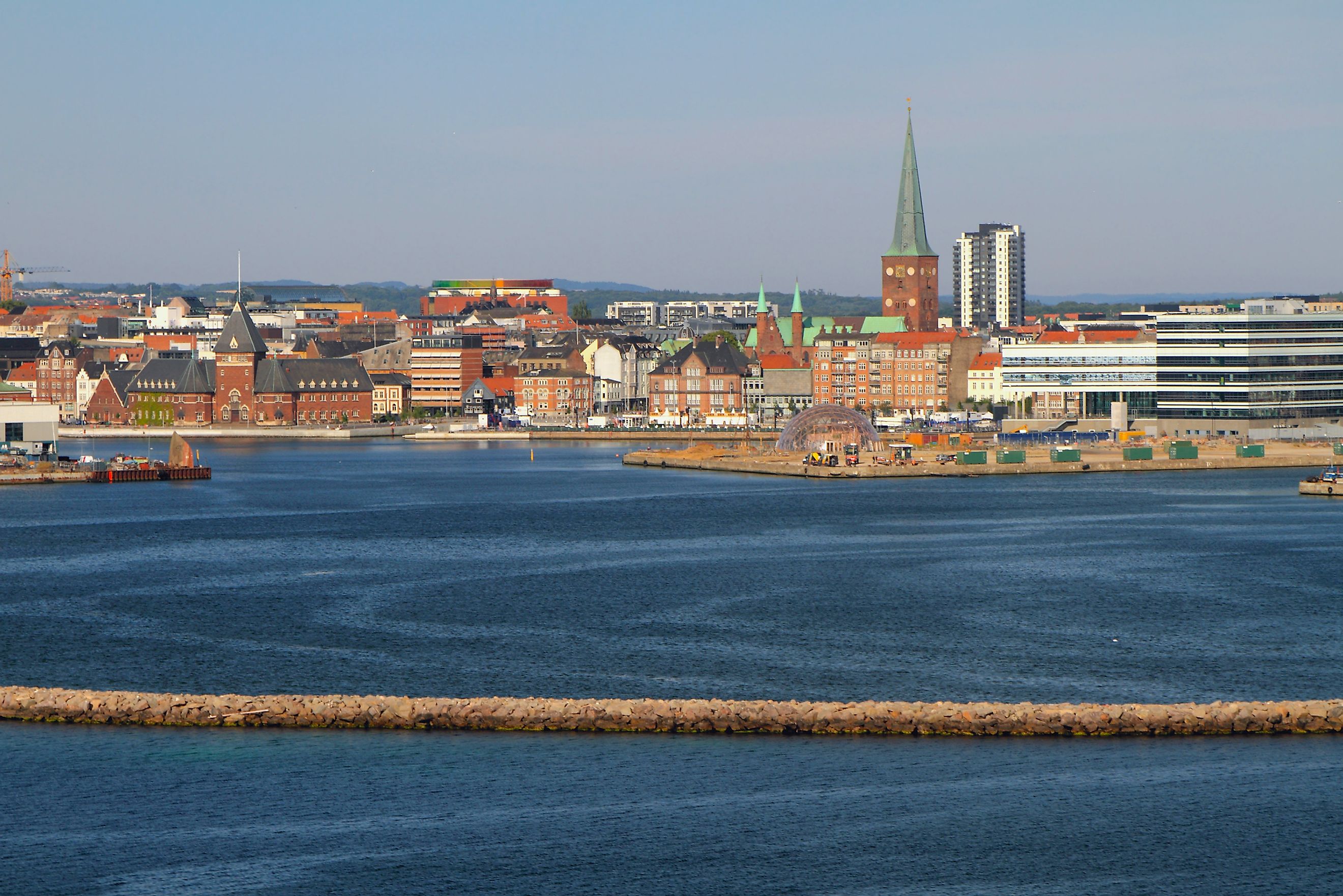
Arhus Bay
The Bay of Aarhus or Aarhus Bay is a body of water that sits out in front of the city that bears the same name. This bay, stretches over an area of nearly 610km, is one of the largest in Denmark and certainly on Jutland Peninsula. The bay is a bustling hub of both trade and travel. Thousands of cargo ships come and go each year, not to mention the daily ferry rides available to those looking to travel to the Danish islands of Zealand and Funen.
Location
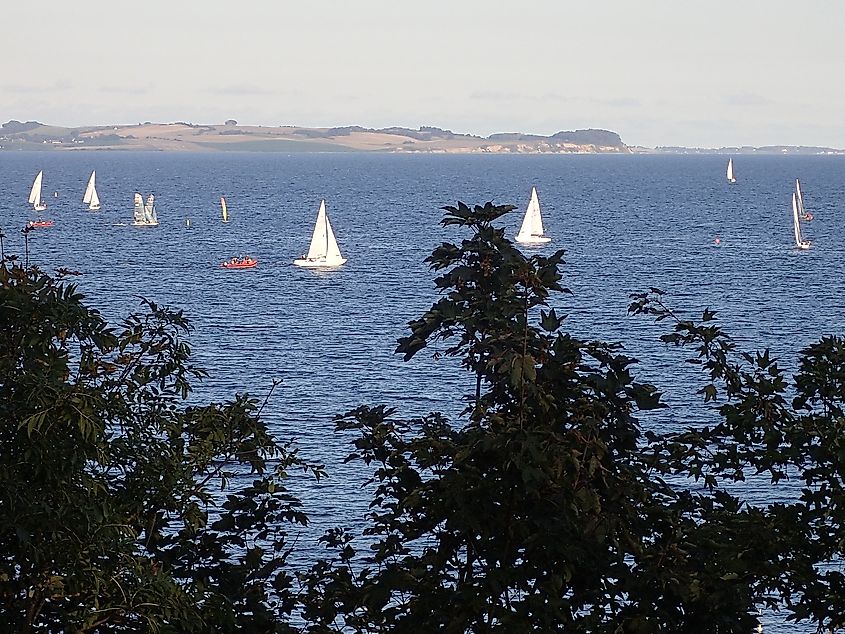
The Bay of Aarhus can be found in Northern Europe alongside the quaint and charming nation of Denmark. The bay sits at the crossroads between the North and Baltic Seas. Within the bay are the small islands of Samsø and Tunø.
Both of these islands are believed to have been formed mostly from reefs and stone buildup. Similar reefs are common in the southern end of the bay, making shipping through that area quite treacherous for large vessels. As stated earlier, the bay is, of course, attached to the city of Aarhus both physically and culturally. The open waters of Aarhus Bay make for great sailing conditions along with other recreational activities.
Climate
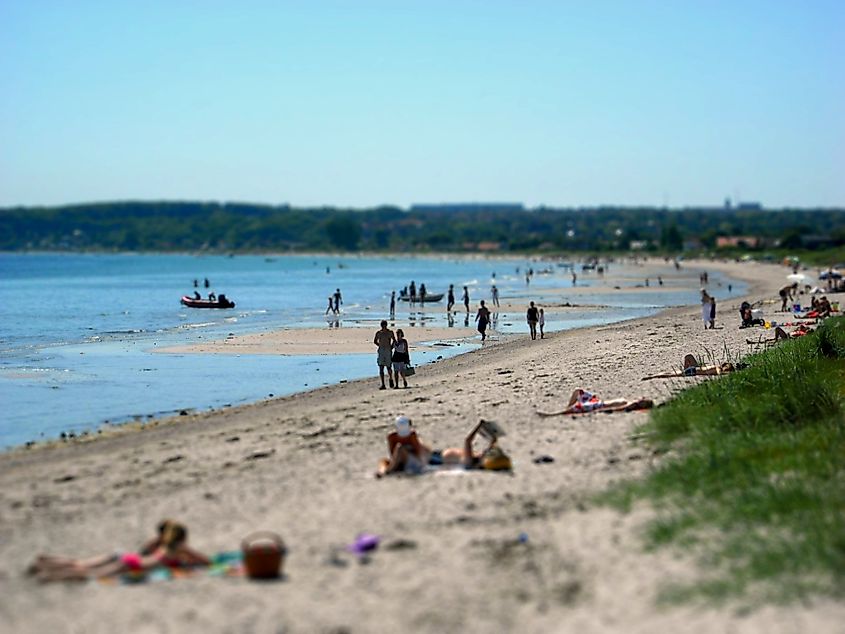
As one can imagine, the weather in Denmark and the rest of Northern Europe can get quite cold, especially during winter. The average temperature for the area is roughly 9 degrees Celsius all year around, with obvious flare-ups during the summer and crashes during the winter.
Rarely the Bay of Aarhus freezes entirely when winter settles in. However, it is much more common to see a portion of the bay build up a considerable amount of ice and small icebergs.
The wind is another noticeable characteristic of the bay. Being located between the North and Baltic Seas, Aarhus Bay is caught in the middle of a crossfire. The wind here can exacerbate any feeling of being cold, making a rainy day all that much worse.
Swimming in these waters is not a common occurrence, but if it does happen, it will almost always be during the summertime. Taking the windchill into consideration, taking a dip into the frigid waters of Aarhus Bay can be an easy way to catch hypothermia or worse.
Marine Life And Environmental Trouble
Sadly, the Bay of Aarhus is known for being at the center of environmental disaster. At the start of the 2000s, the Danish government carried out a series of studies and tests alongside environmental groups only to discover these waters suffered from a high level of hypoxia.
Hypoxia is when the water levels lack a normal amount of oxygen in them. While this is essentially harmless to humans, it spells calamity for fish and other ocean life. As the years have dragged on, a considerable loss of marine life has been documented. The poor water conditions can largely be attributed to a lack of sophisticated sewage treatment and excess land-derived runoff. Efforts have been made in recent years to mitigate these tragic effects.
Human Settlement
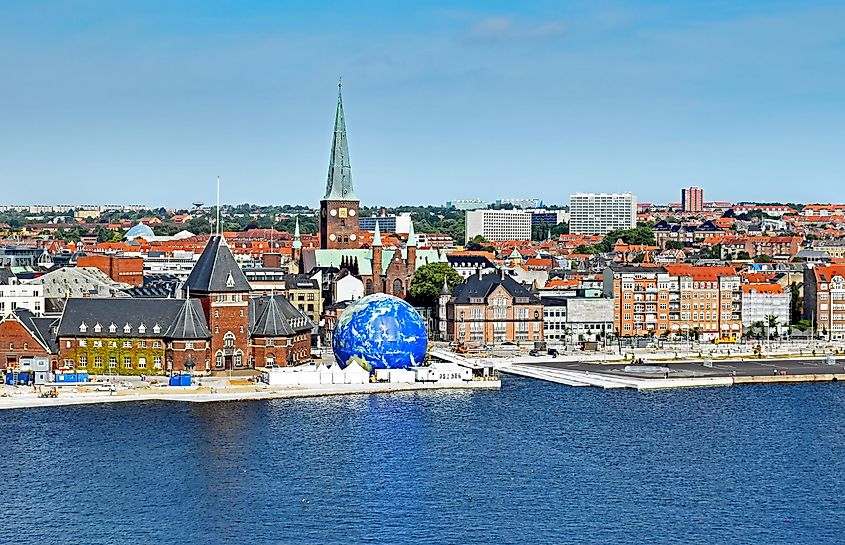
As stated before, the bay gets its name from the city of Aarhus. The city is thought to have first been settled in the early bronze age but would not take shape until the peak of the Viking Age. This city often behaved as a sort of base of operations for Viking raiding parties. Young Danish men would venture out during the warm months towards England and France, only to return with their loot in the winter.
Today Aarhus is much less foreboding and hostile. Aarhus is Denmark's second-largest city, only behind Copenhagen, and hosts one of the largest cathedrals in the nation. Much of the city's architecture has a modern aesthetic but has also done a fantastic job of retaining its millennium-old identity. Its mix of historical and modern architecture has resulted in Aarhus becoming one of Denmark's more popular tourist destinations.
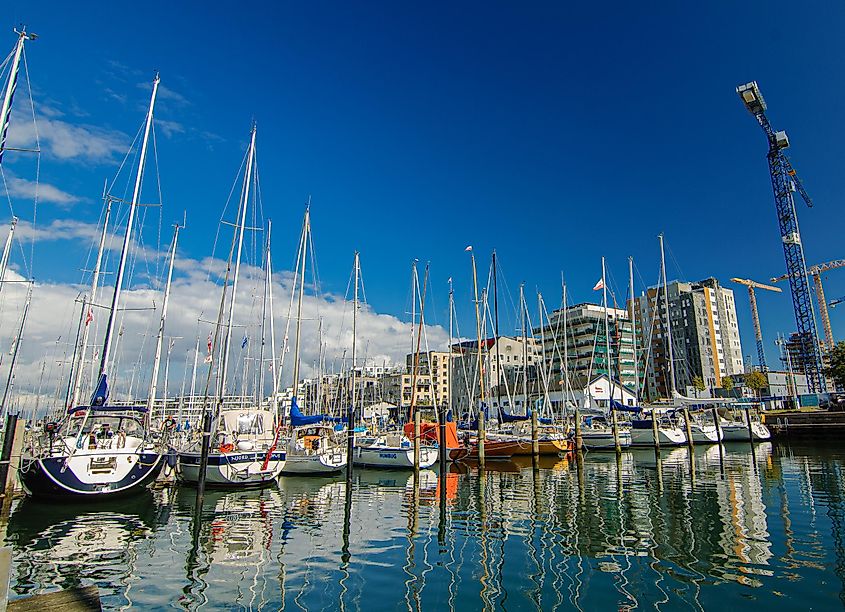
The port in Aarhus is one of Denmark's biggest and most important. Thousands of cargo ships and cruise liners enter the port each year, bringing in millions of dollars in revenue. The local residents are more than happy to use the bay themselves. It is not uncommon to see dozens of privately owned sailboats and other watercraft bobbing around the bay's water.
Behind the cold water and the bone-chilling winds, the Bay of Aarhus continues to pump life into Denmark just as it has for over a thousand years. With a high traffic of trade ships and tourists eager to spend their money, it is no wonder that the average Dane acknowledges and respects this bay.











